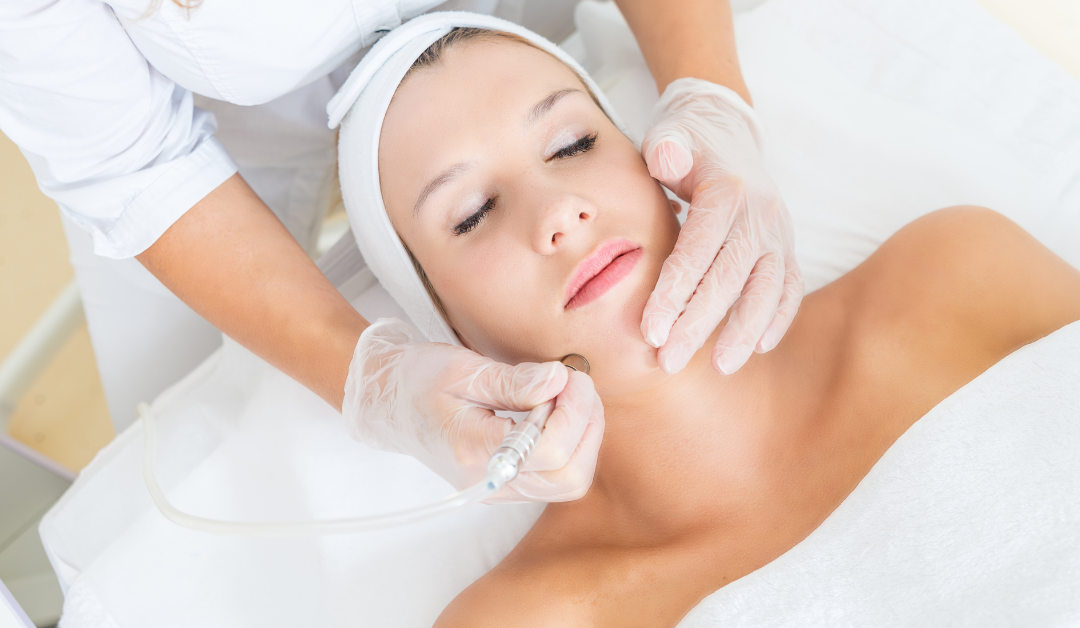At DCSI we understand how frustrating and sometimes embarrassing dealing with acne scars can be. They often make your skin look discolored, uneven, and rough. There aren’t too many over-the-counter products and home remedies that effectively treat or heal acne scars. One of the best options is to visit one of our office locations so that our team can work with you to find the best solutions.
So, what can a dermatologist do for acne scars? Well, they can analyze your skin, concerns, and the types of acne scarring you are experiencing to come to the final treatment plan that will work best for you. There are many options out there, including home remedies, soft tissue fillers, steroid injections, and laser resurfacing.
Reasons to See a Dermatologist for Acne Scars
There are many reasons to seek professional help and advice when it comes to your skin concerns because there is always a risk of making it worse and further damaging or harming your skin. Here are some reasons to see a doctor about acne scars:- Customized Treatment Plan - Working with dermatologists will allow them to create a plan specifically tailored to your skin type, needs, and concerns. They take everything into consideration to guide you down the best path of treatment for you.
- More Effective and Powerful Products - Once you have a plan created, dermatologists can then recommend or provide the best products to you. They can prescribe higher and stronger doses of products as needed, making them more aggressive and often more effective in the treatment.
- Address Other Issues - In one visit, patients can address any and all of their skin concerns and ask all of their questions. It will also allow doctors the chance to explain in depth the effects that the treatment plans will have on the skin and what to look out for, also when to stop if it is needed.
Are Acne Scars Permanent?
There are some scars that can be permanent and other blemishes that are easier to reduce or help fade away. Acne scars can be separated into 3 categories:- Atrophic
- Hypertrophic
- Keloid
Atrophic
These types of scars are flat or shallow and include different variations:- Boxcar - broad and boxlike depressions
- Rolling scars - wavy and even textured acne scars
Hypertrophic
This type of scar is a more noticeable scar. They cause excess tissue to build up where the acne blemish was, making them the same size as the previous blemish.Keloid
These types of scars similarly cause extra tissues to build where the previous blemish was. However, in this instance, the blemish will not only become larger but also possibly darker. Hyperpigmentation can lead to darkened patches or red spots on the skin. Continue reading to learn what a dermatologist can do for acne scars of all types!Best Procedure for Acne Scars
Acne scars can be stubborn and there is not one treatment that works for everyone. Part of the many dermatological services that we offer is to help our patients figure out the best procedures for acne scars. Our offices provide medical dermatology options and cosmetic dermatology options to help treat them. Here are some treatments for acne scars!Home Skin Care
Some over-the-counter products like sunscreens can help limit the contrast between scars and healthy skin. There are also medicated creams that include azelaic acid or hydroxyl acid that might help even the skin tones out.Soft Tissue Fillers
This procedure is when collagen, fat, or other substances, are injected under the skin to plump the skin over the scars if they are indented. The purpose of this is to make the scars look less visible or noticeable. It is important to point out that results are temporary and repeat treatments will be needed for the upkeep. Using soft tissue fillers also has little risk of changing skin color.Laser Resurfacing
This is an approach that is growing in popularity and is commonly used on scars that were previously treated by dermabrasion. It is a riskier option with side effects for those with darker skin or a history of keloids.Chemical Peel
Chemical peels are a chemical solution that doctors apply to the scar tissue that will help remove the top layer of skin and typically reduce the appearance of scars that are deeper. They come in different levels depending on the intensity needed in treatment. Other treatment options:- Botox
- Surgery
- Skin Needling
- Dermabrasion
- Steroid Injection


